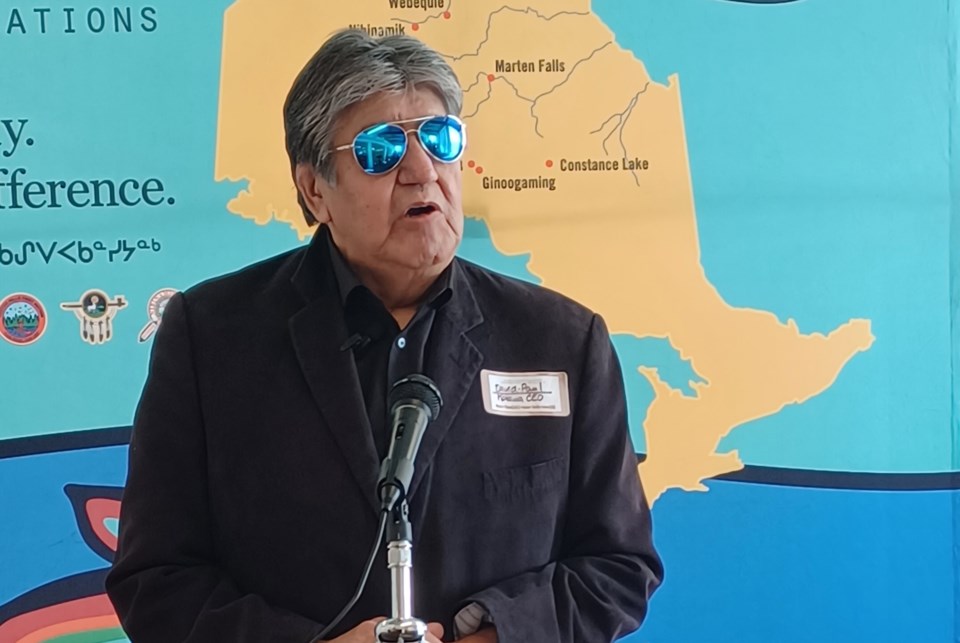THUNDER BAY — Matawa First Nations Management, a non-profit organization supporting nine First Nations, has landed $20 million in financing for an energy retrofit project at its Training and Wellness Centre.
The federal Canada Infrastructure Bank is lending Matawa $15 million through the bank’s Indigenous Community Infrastructure Initiative while Royal Bank of Canada (RBC) is lending $5 million.
The millions are to finance an energy-efficiency retrofit of the former long-term care building that now houses the Matawa Training and Wellness Centre, where upgrades are expected to reduce energy consumption by about 70 per cent.
Matawa CEO David Paul Achneepineskum made the announcement Friday at the building, with retrofit work underway as he spoke.
Indigenous Services Minister Patty Hajdu, bank representatives and chiefs from Matawa communities also participated in the announcement.
Grand-opening is expected this spring
The infrastructure bank’s CEO, Ehren Cory, noted that the $15-million loan “marks our first investment in a First Nation retrofit project.
“Our partnership will make an impact for the 10,000 community members who will benefit from the education, health, social services and community programming offered through the transformed centre,” he said.
Some parts of the building are already in use. Once all the work is completed, the building on Algoma Street will host employment and training services, the Matawa Health Co-operative and social services.
Rosemary Moonias, president of Matawa’s board of directors, said the centre “will be a place where Indigenous people and communities can heal and grow within a wrap-around and culturally sensitive approach.”
Matawa provides services and support to nine First Nations northeast of Thunder Bay: Aroland, Ginoogaming, Constance Lake, Eabametoong, Long Lake #58, Marten Falls, Neskantaga, Nibinamik and Webequie.
All of them benefit from Matawa initiatives and programs such as Kiikenomaga Kikenjigewen Employment and Training Services, commonly called KKETS, that build capacity in communities so that people can stay in their home First Nations, Matawa board member Joe Baxter told Newswatch before Friday’s announcement.
Everyone in a community benefits from the presence of skilled workers and health-care services, said Baxter, who is from Aroland First Nation.
“We need our First Nations to be economically viable and self-dependent. That’s our vision.”
Achneepineskum concurred, saying the chiefs who founded Matawa “had a vision at the time that we need to operate our own services.
“At the time, it was the government (delivering) services,” he said.
Now, said Achneepineskum, Matawa’s member First Nations “will own and operate their own services, their own businesses.
He said Matawa and the First Nations are striving toward “self-sufficient communities, and that's what the dream is all about.”
